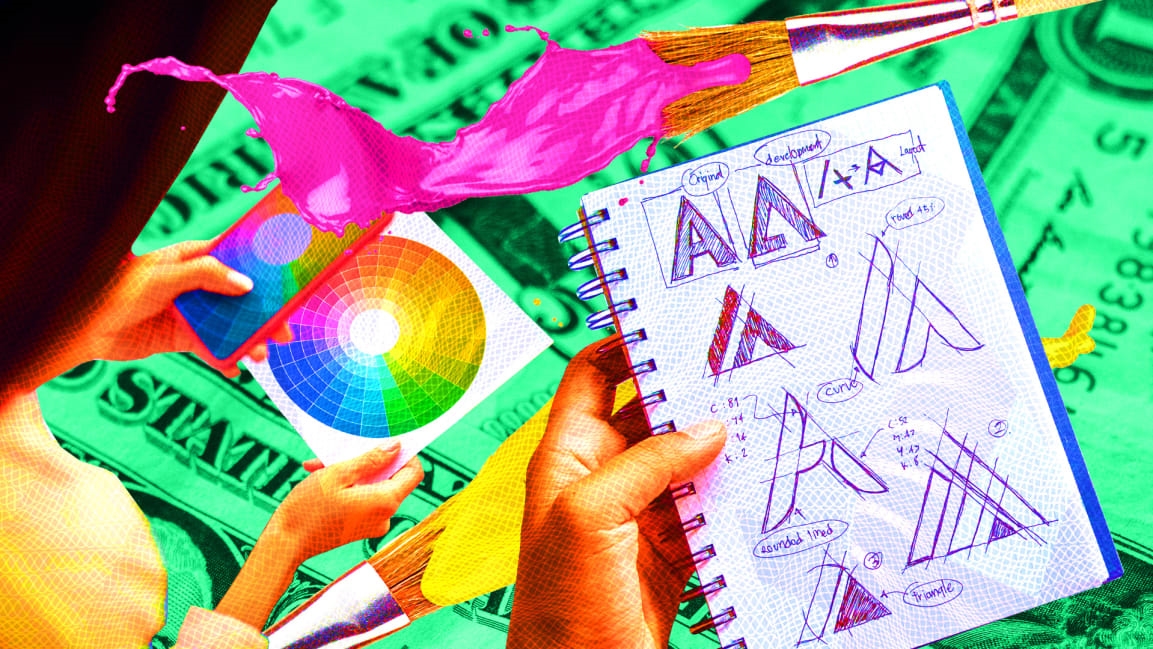If you really value creatives, then pay them that way
By Katie Klencheski
Maybe more than any other, the creative fields have a strange tradition of undervaluing and undercompensating their talent, with employers treating artists, designers, writers, and other creatives as if they should feel lucky to get paid. They are told they should be “hungry”—willing to work crazy hours for free to prove that they are creative. At agencies in particular, it’s an idea that’s reinforced by the entire industry model— -you pitch work for free, cross your fingers and hopefully you get paid for it. It’s a sad reality that I’ve experienced first hand, starting out as a designer all the way to founding my own studio.
Gradually, as studies on the business impact of creativity have proved its value as a revenue driver, this sentiment has really changed a lot. Still, it’s not uncommon for creatives to be left hanging by employers when it comes to benefits like insurance coverage. Not to mention, there’s still a lot of companies that don’t pay interns, even if they do actual creative work. This combination of financial factors has the consequence of turning the creative fields into privileged gated communities, where only those that can afford their own insurance and can live without pay can truly prosper.
It doesn’t have to be this way. I know because, since founding my own agency SMAKK, I’ve worked hard to build a place where creatives can expect to see their value reflected in their compensation: offering competitive pay, insurance, and other benefits. Driven by escalating talent wars with tech companies and the pandemic-fueled Great Resignation—with many choosing to quit rather than return to old ways of working—companies are definitely coming to their senses. But it’s also important for creatives to know what being valued looks like so that they can use this current leverage to demand that value from their employers.
Don’t forget the basics
Gifts and weird perks may be the norm in the creative industry, but the truth is, creatives shouldn’t require their employers to be creative in their benefits. They just need really good basics.
In my experience, a lot of young creatives previously underestimated the need for good basic benefits—things like a 401(k) and being a hundred percent covered in terms of dental, vision, and medical. Since the pandemic and the havoc it caused with health and healthcare, some are getting wiser. Make no mistake, the fact that you won’t contribute anything out of your paycheck towards your health is a significant benefit, and worth demanding. Don’t assume that these types of benefits are just for large companies—for my relatively small company it was a day-one priority. Trust me—for companies looking to draw creative talent, offering each is not just a way to show you care about your employees, it’s a great way to set yourself apart from the competition.
Demand a new normal
Our world’s shared understanding of work and the workplace has seen a radical shift since the pandemic, so be wary of anyone still conducting business as usual. For example, creatives should expect a good remote policy—something that shows that a current or potential employer is not out of step with the reality of this cultural shift. Since the pandemic, my agency has made it a point not to force anybody to come back to an office, not as some sort of cost-cutting measure but because it makes sense for the way we currently live. For the same reasons, make sure to specifically ask about other new pandemic considerations, like work/life boundaries in a WFH environment or mental health benefits and services.
This doesn’t just apply for full time employees either. Creative freelancers deserve the same consideration, so feel free to ask an employer how they dealt with those employees during the pandemic and how it guided any changes to their current policies. Did they leave people with extended contracts out in the cold, or did they find ways to include them on benefits so that they didn’t have concerns about where their healthcare might come from? Longtime freelancers are so common in the creative industry that an employer should be able to outline how they’re being taken care of.
Hold them accountable
Demonstrating that creatives are valued isn’t necessarily just about dollars and cents, but about making sure that they feel valued at all times. That means that employers should be accountable for providing a clear path to growth, giving the necessary feedback to help nurture creative talent and show that they’re invested in their career. Don’t settle for companies that act like they are simply borrowing your time for a while.
Too often, creative work can be very transactional when it should really be a part of a larger creative journey. When I hire somebody, I tell them how I’m going to be accountable to them and what they should expect to get out of their employment, including how I see them growing within the company.
Getting paid well as a creative is certainly important too. But don’t let a good paycheck be your only consideration when choosing who to work for. Creativity has never been more valuable and broader change has never been more possible, so make sure you set the right expectations so that you’re getting everything you’re worth.
Katie Klencheski is the founder and creative director of SMAKK, a branding and growth studio whose mission is to help values-led clients build world changing brands. Katie applies her expertise across content creation, e-commerce, social media, marketing, and digital experiences toward changing consumer behavior, leading to purchasing decisions that are better for people and the planet.
(20)



